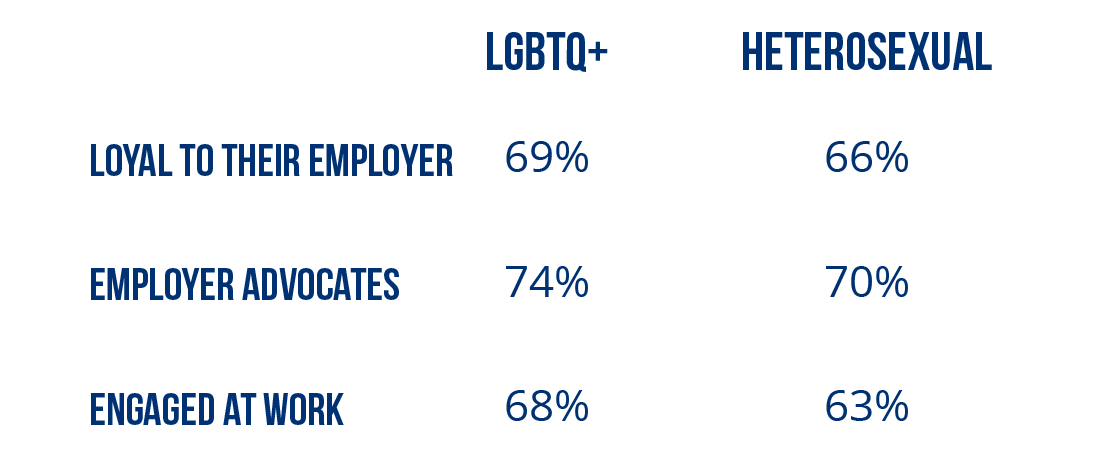The Edelman Trust Barometer provides a wealth of data on trust in institutions across different audiences and demographics. In this Inside Edelman, Sarah Adkins, vice president of our Global Intellectual Property team (which is responsible for the development of the Edelman Trust Barometer), shares more about herself and looks specifically at an unexplored area of the Trust Barometer: the variants and factors of trust within the LGBTQ+ community.
I’ve been a member of the Edelman family and the Edelman Trust Barometer team for 7 ½ years. I also happen to be a wife, a mother and a lesbian, and I couldn’t be more excited to now be able to analyze the LGBTQ+ community for the first time.
In 2020, we added a sexual orientation question to the Edelman Barometer questionnaire in 20 countries, which has now yielded a total of more than 2,500 responses from LGBTQ+ community members around the world, giving us the ability to accurately analyze and explore my community in a new way. I rolled up my sleeves, ran some data and quickly found several noteworthy differences in the relationship that members of the LGBTQ+ community have with institutions, and with their employers in particular.
Activism is the driver of change for any disenfranchised community, and the LGBTQ+ community is no exception. From campaigning in Europe in the 1870s for the legalization of homosexuality, to the gay liberation movement of the 1960s and 70s and to the recent passing of the Equality Act, members of this community have fought for their personal rights tirelessly.
But only in recent years has the LGBTQ+ conversation begun to include the workplace. According to the 2021 Edelman Trust Barometer, 59 percent of the LGBTQ+ community are more likely now than a year ago to voice their objections or protest in disagreement to a stance their organization was taking—nine percentage points higher than heterosexual respondents. Not surprising, right?
This higher level of engagement and activism also translates into higher expectations for CEOs. Seventy-three percent of LGBTQ+ respondents are looking for CEOs to provide education on societal issues and step in to help solve societal problems when other entities fall short—seven percentage points more than heterosexual respondents’ expectations. The LGBTQ+ community wants organizations to have a greater purpose, and simply put: highly engaged employees want to work for engaged employers.
The rewards for employers who meet these higher expectations of their LGBTQ+ workforce are high: LGBTQ+ employees are more loyal (+3 pts), more engaged (+5 pts) and more likely to advocate for their employers (+4 pts) than their heterosexual colleagues.
See how these differences play out across each segment below:

The Trust Barometer also shows a similar level of engagement and reward for brands among LGBTQ+ consumers. According to the 2020 Edelman Trust Barometer Special Report: Brands Amidst Crisis that launched in November 2020, 67% of LGBTQ+ consumers are willing to choose, switch, avoid or boycott a brand based on its stance on societal issues. This is compared to 59% of heterosexual consumers who would do the same.
As an activist member of the LGBTQ+ community myself, it is important to me that my employer CEO is amplifying my values; if I feel that I can trust my organization to do what is right on social issues, I will be its greatest advocate. Employers should not fear workplace activism, but rather harness that energy and use it to bring about positive change.
Nine years ago I decided to get one of my favorite quotes tattooed on my arm. It serves as a daily reminder to always be your best and bring your best to others: "Our deepest fear is not that we are inadequate. Our deepest fear is that we are powerful beyond measure.” – Marianne Williamson
Sarah Adkins is a vice president in Edelman’s Global Intellectual Property team.

